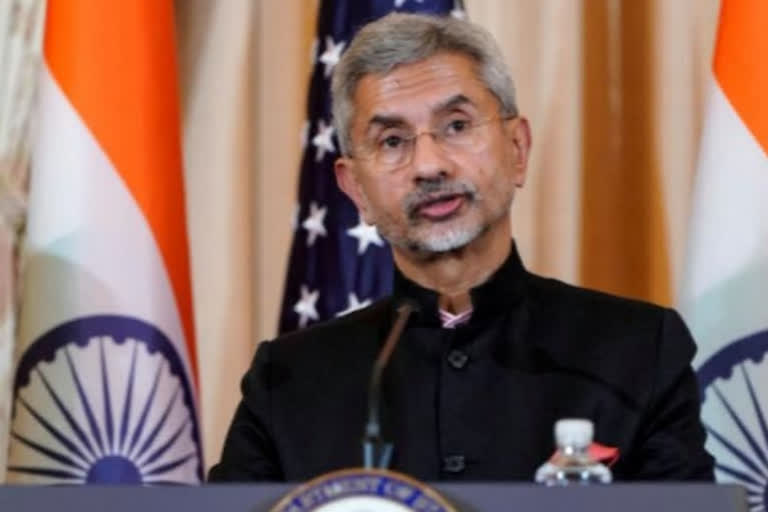New Delhi:Building connectivity is an act of trust and it must, at the minimum, conform to laid down laws as respecting the sovereignty and territorial integrity are the most basic principles of international relations, External Affairs Minister S Jaishankar said at a regional conference in Tashkent on Friday.
He also said that connectivity efforts must be based on economic viability and financial responsibility and they should not create debt burdens, seen as an oblique reference to China's Belt and Road Initiative (BRI). He said no serious connectivity initiative can ever be a one-way street and that the real issues are of "mindsets, not of disputes" as blocking connectivity in practice while professing support in principle benefits no one.
There has been growing global criticism of the BRI as Chinese financing has resulted in rising debt in several countries where infrastructure projects under the mega initiative are being implemented. In his address, Jaishankar said there was a need to address not just physical infrastructure but all its accompanying facets while expanding connectivity between Central Asia and South Asia.
The conference on 'Central and South Asia: Connectivity' has been hosted by Uzbekistan with an aim to significantly boost connectivity between the two regions. Pakistan Prime Minister Imran Khan, Afghan President Ashraf Ghani and leaders from around 35 countries attended the conference.
Read:Jaishankar discusses Afghanistan situation with Ashraf Ghani
"Tourism and societal contacts can create a fostering enabling environment. But, at the end of the day, building connectivity is an act of trust and must, at the minimum, conform to international law. Respecting sovereignty and territorial integrity are the most basic principles of international relations," he said. Jaishankar said that connectivity efforts must be based on economic viability and financial responsibility.
"They should promote economic activity and not create debt burdens. Ecological and environmental standards, as also skill and technology transfers, are musts. Connectivity must be consultative, transparent and participatory," he said.
Jaishankar said that for reliable connectivity within and through Afghanistan, the world must have confidence in its governance, noting that development and prosperity go hand in hand with peace and security.
"Our connectivity deliberations expect predictability, efficiency and observance of norms of our time as its foundation," he said. Jaishankar said economic growth is universally driven by "3Cs: connectivity, commerce and contacts", adding all three need to come together to ensure regional cooperation and prosperity.
